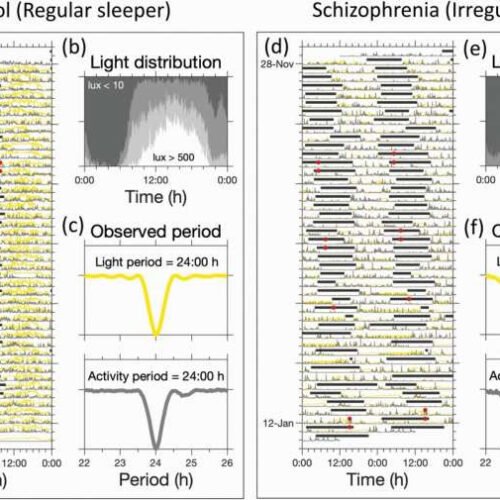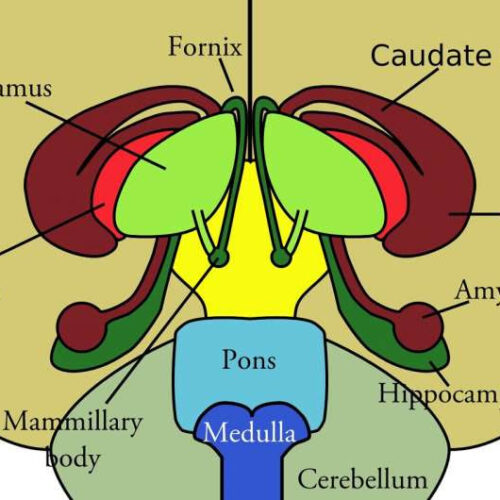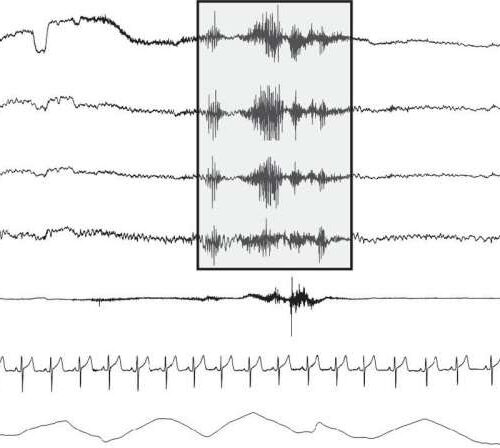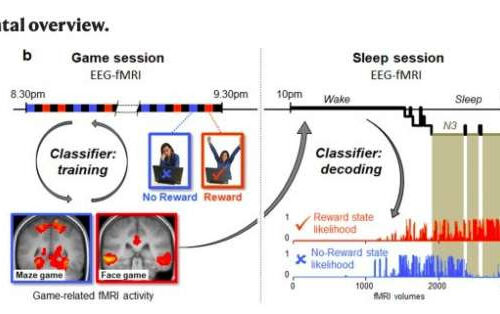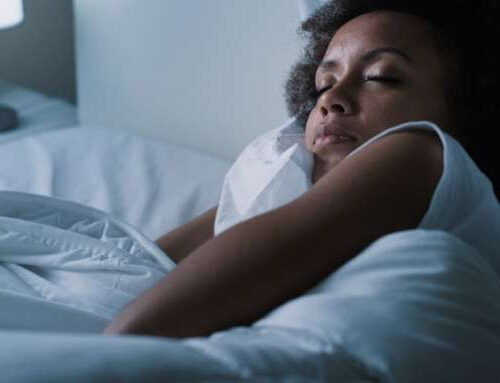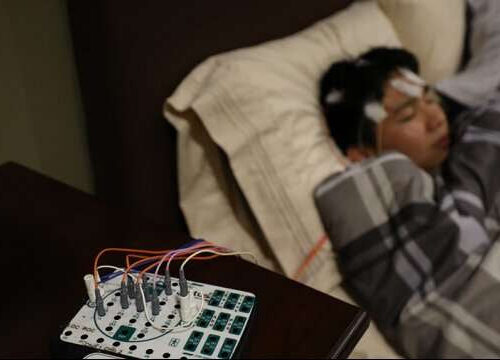by Northwestern University The three main stages of the experiment of Whitmore et al. (2022). First, participants learned 80 face-name associations. Next, they slept while EEG was monitored to determine sleep stage, and 20 of the spoken names were presented softly over background music during slow-wave sleep. Finally, memory testing showed superior memory due to...
Tag: <span>Sleep</span>
Edison was right: Waking up right after drifting off to sleep can boost creativity
8 DEC 2021 2:00 PM BY SOFIA MOUTINHO Thomas Edison takes a nap, perhaps to boost his creativity.BETTMANN/CONTRIBUTOR/GETTY IMAGES When Thomas Edison hit a wall with his inventions, he would nap in an armchair while holding a steel ball. As he started to fall asleep and his muscles relaxed, the ball would strike the floor,...
Mathematical model of light and circadian data improves sleep timing in people with schizophrenia
by University of Surrey Typical rhythms of sleep, activity and light exposure. (a), (d): Light (yellow trace), activity (gray trace), 6-sulphatoxymelatonin (aMT6s) acrophase (red circles) and sleep timing (horizontal gray bars). (b) and (e): Average pattern of light exposure across the 24-h day. The shaded regions from white through to dark gray indicate the fraction of...
Researchers use model of hypothalamus to implicate genes associated with sleep, BMI, puberty, and more
by Children’s Hospital of Philadelphia Credit: Pixabay/CC0 Public Domain A study led by researchers at Children’s Hospital of Philadelphia (CHOP) has implicated several genes involved in a variety of bodily functions associated with the hypothalamus, a notoriously difficult-to-study region of the brain. The findings could help clinicians identify potential causes of dysfunction for many important traits...
Short on sleep? Your heart may have a harder time adjusting to disruptions during sleep
by American Physiological Society Figure 1. A representative image showing a 20-s polysomnography (PSG) sleep tracing including electrooculography (EOG), electroencephalography (EEG; F3, C3, and O1 leads), chin electromyography (EMG), electrocardiogram (ECG), and respiration (Resp). The light gray box outlines an exemplary cortical arousal as marked by an abrupt shift in the EEG frequency. Credit: DOI:...
Wrist accelerometers help researchers link sleep quality to psychiatric disease
IMAGE: ASLEEP CREDIT: PISAUIKAN, PIXABAY, CC0 (HTTPS://CREATIVECOMMONS.ORG/PUBLICDOMAIN/ZERO/1.0/) Multiple measures of sleep patterns and sleep efficiency are associated with lifetime diagnoses of mental illness, according to a new study that used wrist accelerometer data to track sleep. The study is publishing October 12th in the open-access journal PLOS Medicine by Shreejoy Tripathy of the University of Toronto and the...
The Mysterious Link Between COVID-19 and Sleep
The coronavirus can cause insomnia and long-term changes in our nervous systems. But sleep could also be a key to ending the pandemic.By James Hamblin Peter Cade / GettyDECEMBER 21, 2020SHARE The newly discovered coronavirus had killed only a few dozen people when Feixiong Cheng started looking for a treatment. He knew time was of the...
Study shows that rewarded life experiences are replayed and consolidated during sleep
by Ingrid Fadelli , Medical Xpress Credit: Sterpenich et al. Past neuroscience studies have consistently showed that sleep plays an important role in memory consolidation. For instance, some neuroimaging research showed that the brain regions that are activated while humans are encoding waking experiences can later be reactivated during sleep, particularly during non-rapid eye movement (NREM) sleep....
Brain cortex may regulate the need for sleep
by University of Oxford Brain cortex may regulate the need for sleep. Credit: Shutterstock Researchers at the University of Oxford have now uncovered a new target for sleep investigations within the mammalian brain—the cerebral cortex. The paper was published today in Nature Neuroscience. The cerebral cortex makes up about 80% of the brain’s volume and is responsible...
Music listening near bedtime disruptive to sleep, study finds
by Baylor University Participants for the experimental study were monitored during sleep to determine if earworms had an impact on nighttime sleep physiology. Credit: Robert Rogers/Baylor University Most people listen to music throughout their day and often near bedtime to wind down. But can that actually cause your sleep to suffer? When sleep researcher Michael Scullin,...


